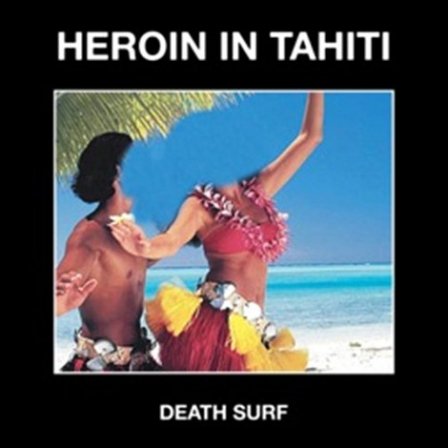Everyone’s talking about The New Thalassology. What, you haven’t heard? Sea histories, we are told, make possible “novel species of juxtaposition and comparison,” “unexpected coherences,” the subversion of hierarchies — and, while these claims sound rather familiar, such histories also allow landlubbers “to indulge a taste for the romance or the frisson of seafaring.” But let’s forget, just for a moment, about Net-beloved pirates, New Age dolphins, and the oft-repeated triumphs of textual deconstruction: the ocean is also (wine-) dark, littorally and metaphorically, in a way that resists Romanticized reclamation.
Alongside Heroin In Tahiti, we find ourselves on the abandoned beaches of Ostia in winter, facing the murder of Pasolini — and indeed, the band emerges from the landscapes beloved of neorealism, the “Borgata Boredom” scene of (landlocked) East Rome. Their music, which we might describe as post-surf (though “dronabilly” is floating around in the ether) begs for descriptives like grinding, shimmering, booming, haunting — music that dregs depth of profundity (atmospheric rather than lyrical). Like the name bestowed upon the LP, the song titles provide translucent clues to their contents, a psychogeographical “Spaghetti Wasteland” stalked by “Sartana” (antihero of such films as Blood At Sundown and If You Meet Sartana Pray For Your Death).
A precedent for this nonetheless original sound lies in Die Haut and Lydia Lunch’s immortal “Der Karibische Western,” though even that piece drives forward where Heroin In Tahiti are stuporific (and features vocals where HIT are instrumental). But surf rock has been as yet under-revived in comparison to other genres, and the usual approach to the kind of atmosphere we find here has been either from Cormac McCarthy-esque drawn-out Gothic country or from soundtracks to imaginary 70s gialli and low-budget horror. Surf influences are more commonly found in the neo-exotica and psychobilly traditions, rather than giving us HIT’s slow-motion gut-churn, the languid yet menacing rush of the waves… The Cramps time-stretched and deschlockified… the looming ruins of rusting hulks and marine industry, the decline and fall of desalination, the toxified mother ocean reclaiming its own. In the undertow are crunchy, synthetic elements — somewhere between the scrape of sand on sand and the industrial rhythms of the pistons of an immense machine running down — post-surf as post-apocalyptic.
This then is surfing on Neville Shute’s beach, a nuclear wasteland in which human time draws itself out not orgiastically, but in a familiarity (here, our genre revival) couched in a species of grandiose resignation. If on Karibische Western Lunch sings of a heart left at the seaside, washed up, wrung out, and left to dry, Heroin In Tahiti’s nihilistic, bleached, and sand-caked sound could be the briny, slow-pulsing remains.
More about: Heroin In Tahiti


